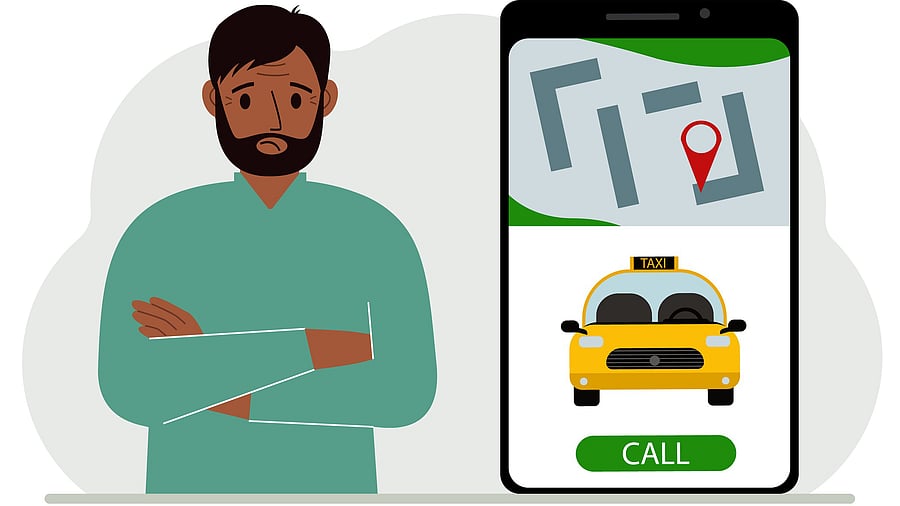
Image for representation.
Credit: iStock Photo
New Delhi: Given the rapidly changing shared mobility paradigm in India, the Union Ministry of Road Transport and Highways has amended the Motor Vehicle Aggregator Guidelines. Sumit Pande explains what the new guidelines mean for aggregators, drivers and users.
Why has the government amended the guidelines?
The 2020 guidelines issued under the Motor Vehicles Act provided a regulatory framework for state governments to issue licences and regulate road transport aggregators. The ecosystem has since seen significant changes with the introduction of bike-sharing, electric vehicles (EVs) and auto-rickshaw rides. These changes have been incorporated to deal with issues of safety, user security and driver welfare.
Who will implement these guidelines?
The Motor Vehicles Act was amended in 2019 to introduce the definition of the term 'aggregator'. This was done to provide ease of doing business to the aggregator and to ensure customer safety and driver welfare. The guidelines issued thereafter made it mandatory for aggregators to obtain a licence from the state governments to run their businesses. As for the revised guidelines, the Centre has suggested that the state governments adopt them within three months from the date of issue. The states may include additional provisions in addition to the ones suggested by the Union government.
What are the terms and conditions for aggregators?
The aggregators shall conduct an induction training programme before onboarding a driver. Health guidelines issued by the central government or the respective state government for public safety shall be followed. It has also been made mandatory for the aggregators to appoint a grievance officer to resolve all the grievances received and provide those details to the licence-issuing authority designated by the state. The contact details of the grievance officer should be displayed on the aggregator app and website.
What is there for passengers?
The guidelines say aggregators shall ensure a minimum amount of Rs 5 lakh as insurance for passengers. In the event a complaint is registered by a passenger against the driver for violation of provisions of the Act, rules or these guidelines, an inquiry is conducted by the aggregator within three days from the day on which such a complaint is made. Appropriate action against the driver is only taken after the completion of such an inquiry. The aggregator shall inform the passenger of the outcome of the said inquiry upon its completion. The fare shall be charged only from the point of origin of the journey to the point of destination where the passenger is dropped off.
What’s there for drivers?
The drivers can operate with multiple aggregators. Health insurance of not less than Rs 5 lakh and a term plan of not less than Rs 10 Lakh for each driver shall be provided. These amounts shall be increased each year by a percentage as notified by the central government. It has also been prescribed to mandatorily hold an annual refresher training programme for drivers whose rating falls below five percentile among all drivers. The driver onboarded along with the motor vehicle shall receive at least 80% of the fare applicable, including all costs under the driver’s fare. For drivers operating aggregator-provided cabs, the share in the applicable fares will be 60%.
How will fares be determined?
The state government shall notify the base fare for each category of motor vehicles. The aggregator will be permitted to charge a minimum of 50% lower than the base fare and a maximum dynamic pricing of two times the base fare.
What are the norms guiding the cancellation of a ride?
If a driver cancels a ride without any valid reason, a penalty of 10% of the fare, not exceeding Rs 100, shall be imposed. The same norms have been recommended for cancellations by the passengers.